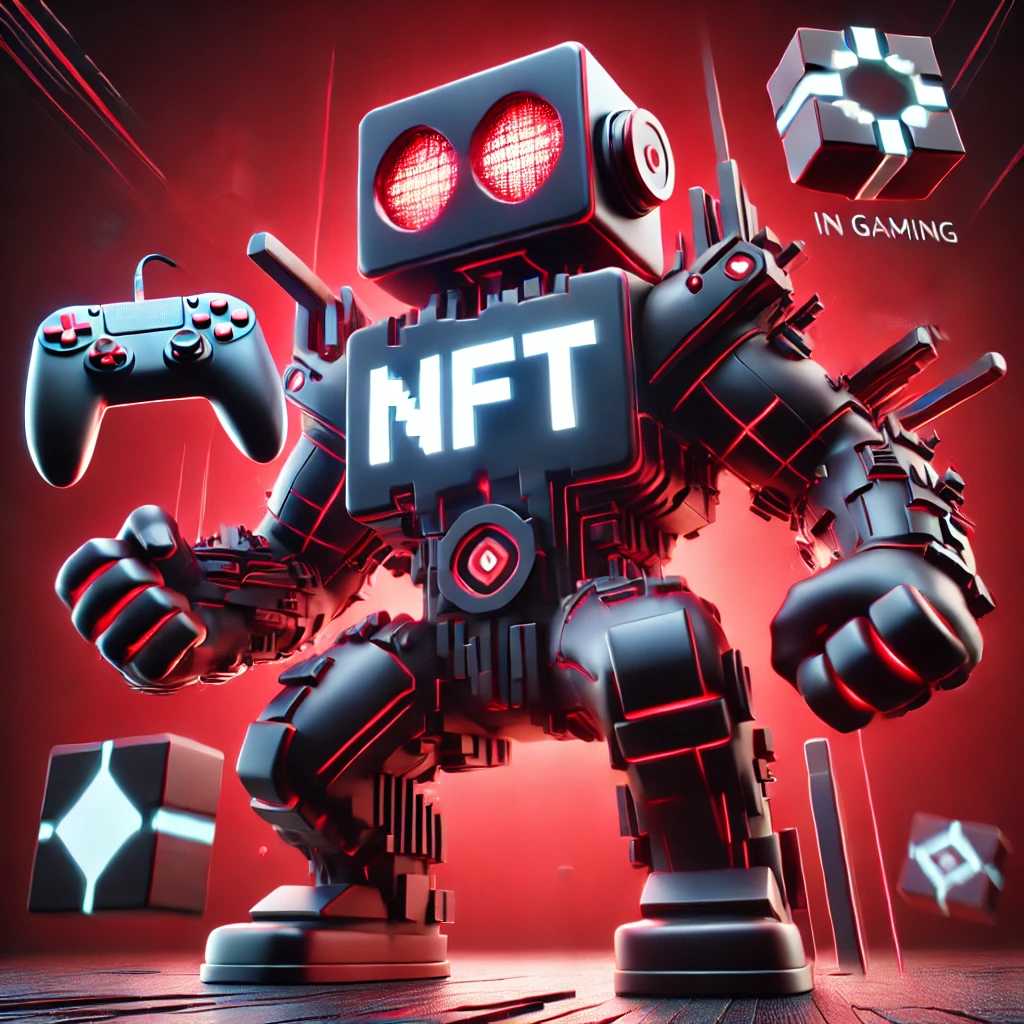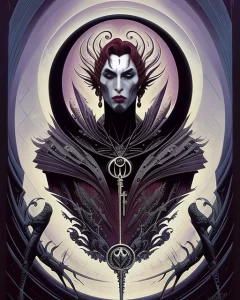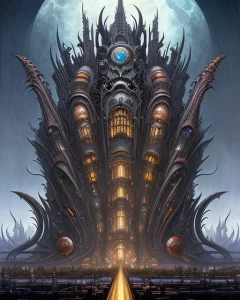The gaming industry has always been at the forefront of technological innovation, and the emergence of non-fungible tokens (NFTs) is no exception. NFTs are revolutionizing the way we play, own, and interact with games, ushering in a new era of digital ownership and player empowerment. This article delves into the profound impact of NFTs on gaming, exploring their functionalities, advantages, and challenges, while shedding light on the transformative potential they hold for the future of the industry.
Table of Contents:
Understanding NFTs in Gaming
NFTs are unique digital assets that represent ownership of real-world or virtual items. In the gaming context, NFTs can represent in-game items, characters, skins, virtual land, and even entire games themselves. Their unique properties allow for verifiable ownership and transferability, eliminating the need for centralized control and making them ideal for building vibrant and engaging in-game economies.
The key advantages of NFTs in gaming include:
- Digital Ownership: NFTs empower players with true ownership of in-game assets, allowing them to trade, sell, or even rent them to other players outside the game’s confines.
- Increased Value: Scarcity and demand are driving factors in NFT value. In-game items with unique attributes or limited availability can gain significant value over time, providing players with a potential source of income.
- Interoperability: NFTs facilitate the seamless transfer of assets between different games or platforms, creating a connected and interoperable gaming ecosystem.
- Enhanced Player Engagement: By allowing players to own and trade valuable assets, NFTs foster a deeper sense of investment and engagement in the gaming experience.
- New Revenue Streams: NFTs provide game developers with new revenue streams through in-game marketplaces, secondary market sales, and the potential for royalties on future transactions.
NFT Use Cases in Gaming
The applications of NFTs in gaming are diverse and constantly expanding. Some of the most prominent use cases include:
In-Game Items
One of the most common applications of NFTs is to represent in-game items. This includes everything from weapons and armor to cosmetics, virtual pets, and even virtual land in open-world games. These items can be traded on marketplaces, allowing players to buy and sell them for real-world currency or in-game currency.
Game Characters
Players can own NFTs representing unique characters with specific abilities, stats, and appearance. This gives players a greater sense of ownership and control over their in-game personas. Owning such characters can also provide access to special perks and unlock new game features.
Virtual Land
NFTs can represent virtual land within a game, granting players ownership rights to specific plots of land. These plots can be developed, built upon, and even rented out to other players, creating a thriving virtual economy.
Decentralized Gaming Platforms
NFTs are playing a crucial role in the rise of decentralized gaming platforms, also known as “play-to-earn” games. These platforms are built on blockchain technology, empowering players to own a stake in the game and share in the profits generated. They offer players a unique opportunity to earn real-world value through their gameplay.
Metaverses
Metaverses, immersive virtual worlds, are becoming increasingly popular. NFTs are essential for creating and managing virtual assets within these worlds. Players can own unique avatars, virtual real estate, and other digital assets that can be used and traded within the metaverse.
Benefits of NFTs for Gamers
NFTs offer a multitude of benefits to gamers, transforming the traditional gameplay experience:
- Enhanced Ownership: NFTs provide players with true digital ownership of in-game assets, ensuring they control their virtual property and have the freedom to trade or dispose of it as they see fit.
- Economic Empowerment: Players can earn real-world value through gameplay by selling or renting their NFT assets, turning gaming into a potential source of income.
- Increased Scarcity and Value: NFTs can create limited edition or rare in-game items, adding value and desirability to specific assets. This can lead to thriving economies within games and encourage active trading.
- Interoperability: NFTs can be used to transfer assets across different games and platforms, expanding the possibilities for gameplay and interaction with other players.
- Transparency and Security: Blockchain technology ensures the transparency and immutability of NFT ownership, safeguarding assets from fraud and unauthorized access.
Challenges Facing NFTs in Gaming
While NFTs hold immense potential for gaming, they also face several challenges that need to be addressed:
Scalability
Blockchain technology, particularly Ethereum, often experiences congestion and high transaction fees, impacting the smooth functioning of NFT marketplaces and in-game economies. Developers are seeking solutions to improve scalability and reduce transaction costs.
Regulation and Legal Issues
The regulatory landscape surrounding NFTs is still evolving, and the lack of clear guidelines can create uncertainty for game developers and players. Legal issues related to intellectual property rights and tax implications also need to be addressed.
Cryptocurrency Volatility
The value of NFTs is tied to the underlying cryptocurrency used for transactions. This volatility can pose risks for players, as the value of their assets could fluctuate significantly, potentially impacting their investments.
Fraud and Scams
As with any emerging technology, there is a risk of fraud and scams within the NFT ecosystem. Scammers can create fake NFTs or exploit vulnerabilities in marketplaces to defraud players. It is essential for gamers to be aware of these risks and take precautions to protect themselves.
Environmental Concerns
The energy consumption associated with proof-of-work blockchain networks has raised environmental concerns. While some blockchain networks are transitioning to more efficient energy-saving models, the environmental impact of NFT-related transactions needs to be carefully considered.
Player Acceptance
For NFTs to succeed in gaming, they need to gain widespread acceptance from gamers. There are concerns among some players regarding the potential for NFTs to create pay-to-win mechanics or to inflate prices on in-game items. Developers need to make sure NFT implementation is fair, transparent, and benefits players.
Future of NFTs in Gaming
NFTs are poised to play a transformative role in shaping the future of gaming, offering new possibilities for player ownership, engagement, and monetization. Here are some key trends that are likely to emerge:
Decentralized and Blockchain-Based Games
We can expect to see a surge in decentralized gaming platforms built on blockchain technology. These games will empower players with greater control over their in-game assets, allowing them to participate in the game’s governance and economics.
Interoperable Game Economies
NFTs will facilitate the creation of interconnected game economies where assets can be seamlessly transferred between different games and platforms. This will create a more vibrant and dynamic gaming ecosystem, fostering cross-game interactions and collaborations.
Metaverse Integration
NFTs will become integral to the development and functioning of metaverses. Players will use NFTs to own virtual land, customize avatars, and interact with digital assets within immersive virtual worlds.
Gamified Finance (GameFi)
GameFi, a fusion of gaming and finance, will continue to grow, leveraging NFTs to create unique financial experiences within games. These experiences could involve decentralized finance (DeFi) mechanisms, tokenized in-game rewards, and other innovative financial models.
Conclusion
NFTs are changing the gaming industry by redefining the relationship between players, developers, and in-game assets. They offer players unprecedented ownership and control over their virtual property, fostering deeper engagement and creating new opportunities for monetization. While challenges remain, particularly around scalability, regulations, and environmental impact, the potential benefits of NFTs for gaming are undeniable. As the technology matures and the regulatory landscape evolves, NFTs will continue to have a profound impact on the future of gaming, ushering in a new era of player empowerment, interoperability, and decentralized ownership.
FAQ
What are NFTs in Gaming?
NFTs, or non-fungible tokens, are unique digital assets that represent ownership of real-world or virtual items. In gaming, they can represent in-game items, characters, skins, virtual land, and even entire games themselves.
What are the benefits of NFTs for gamers?
NFTs offer gamers several benefits, including true digital ownership of in-game assets, the ability to earn real-world value through gameplay, increased scarcity and value for in-game items, interoperability across games and platforms, and increased transparency and security.
What are the challenges facing NFTs in gaming?
Challenges include scalability issues, regulatory uncertainties, volatility in cryptocurrency values, fraud and scams, environmental concerns, and player acceptance.
How are NFTs changing the gaming industry?
NFTs are revolutionizing the gaming industry by creating new possibilities for player ownership, engagement, and monetization. They are leading to the emergence of decentralized gaming platforms, interoperable game economies, metaverse integration, and gamified finance (GameFi).
What is the future of NFTs in gaming?
The future of NFTs in gaming is bright. We can expect to see further growth in decentralized platforms, interoperable game economies, metaverse integration, and GameFi, creating a more immersive and economically empowered gaming experience.






